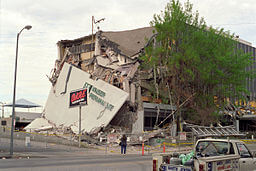Why don’t people want to be part of an emergency response team?
In our years of dealing with emergency planning, at the local or regional level, people tell us — or don’t tell, but reveal — these reasons for not wanting to participate:
- For the most part it’s that they are busy . . . too busy they think to find the time to participate in one more activity.
- Some people are hard wired against joining any group or engaging in any kind of preparation.
- Some people just have a mental block against thinking about “negative” things. (Insurance agents encounter this type of person on a regular basis.)
- Another less lethal version of this attitude is the person who lives in denial.
- Then there is the hard-core procrastinator (this type is our absolute favorite).
How to overcome these obstacles? The question technique…
While there is no magic bullet for any of these folks, we’ve found that – rather than trying to “sell them” on participating – giving them a list of questions like the following can have a sobering effect on most people with an IQ over 75.

When is a convenient time?
Question #1: What day and time would be best for you and the safety of your family to schedule a major earthquake? What time would be the least inconvenient?
Question #2: If you are away from home when an earthquake or other major disaster hits and your house is damaged, who do you expect will check to see if anyone needs rescuing and/or who will turn off the natural gas to prevent fire?
Question #3: If you are trapped underneath a bookcase or under the rubble of your (now former) house and impassable roads are preventing any official help, would you like to have trained CERT neighbors try to rescue you?
(If not, what color body bag would you prefer? They come in white, blue or black and heavy duty models are available for people over 240 lbs.)
Question #4: In the event of a real catastrophic event that lays waste to much of your community, which would you prefer:
a. A bunch of well-meaning neighbors running around in panic mode trying to figure out what to do, or
b. Trained and organized Community Emergency Response Team Members springing into action according to well-rehearsed tasks for which they have volunteered?
Question #5: Following a widespread disaster, you’re busy at work, trying to save the business that provides you and your family with a livelihood, but you have children at school and an aging parent, one cat, a dog and one Gerbil at home. Can you save the business without knowing your neighbors are looking after the home front until you get there?
Obviously, we could come up with more questions. But the best questions will come from you and the people in your neighborhood who know the actual circumstances.
The point is simply to get people thinking about the consequences of not taking action.
Next, we’ll discuss the first steps in building a neighborhood or workplace CERT group.
Joe Krueger
Your Emergency Plan Guide Team
P.S. Action Item: If you liked the questions, use them! Pass them out at work, or share one-by-one via email. Use them however you want to get the conversation started!
Don't miss a single Advisory.
Thank you for subscribing.
Something went wrong.
